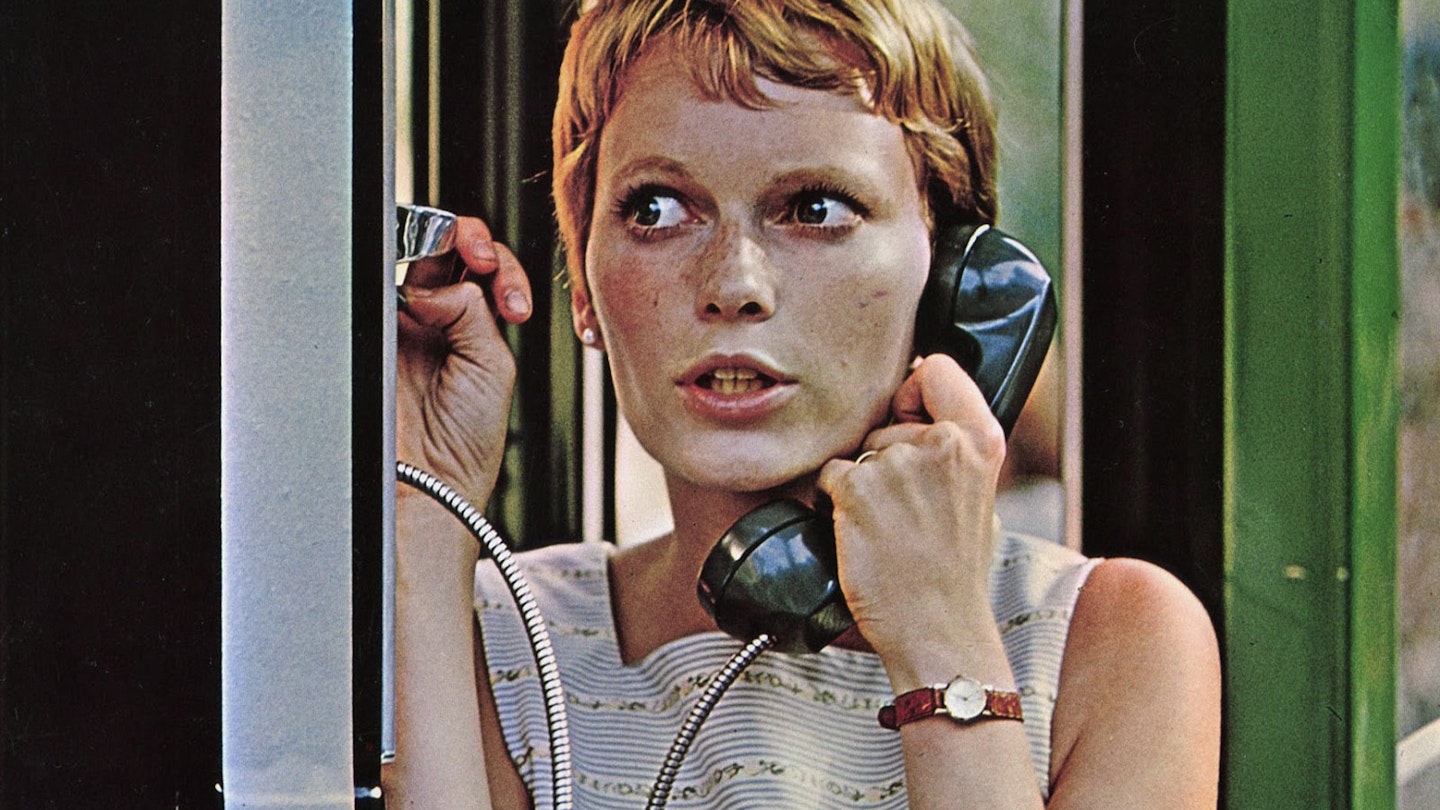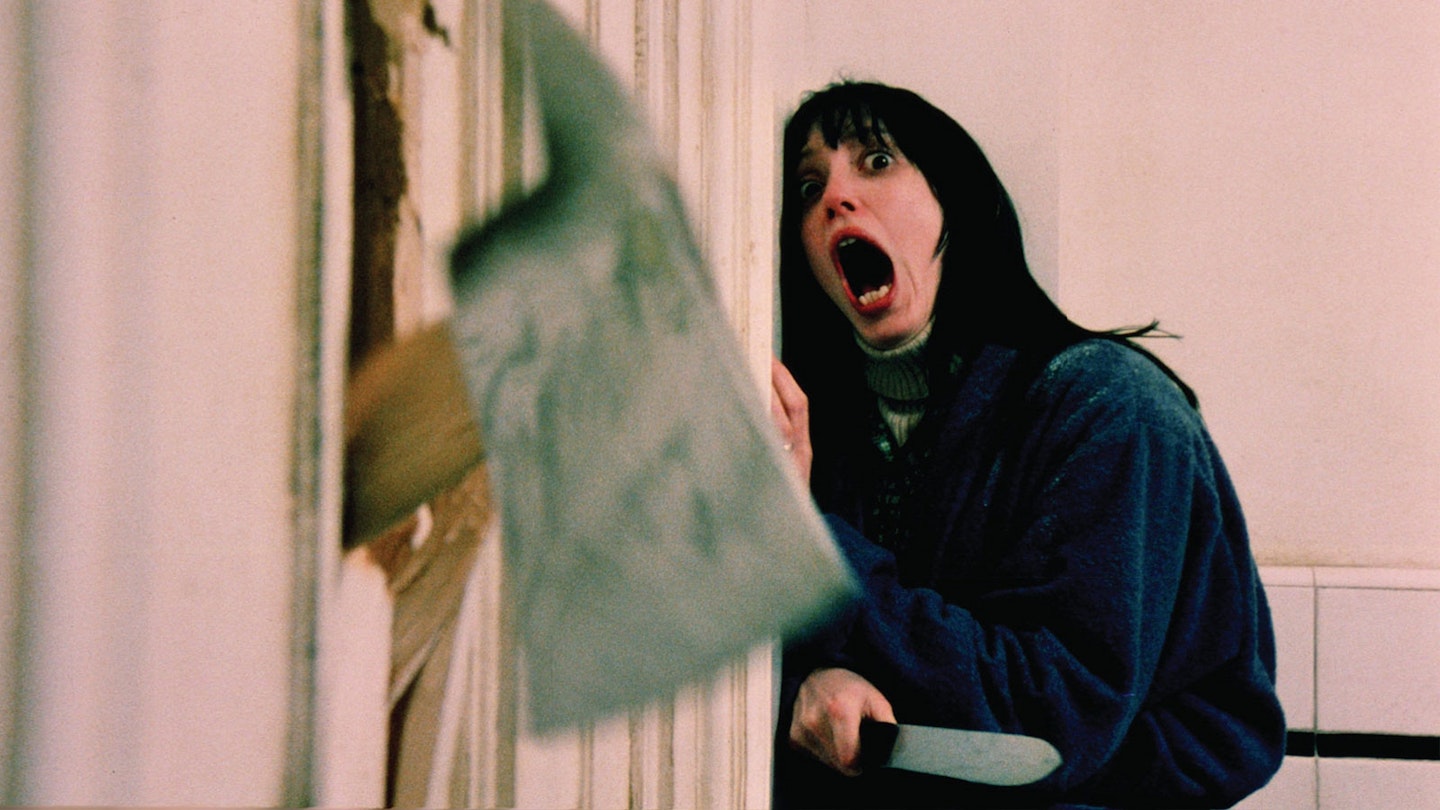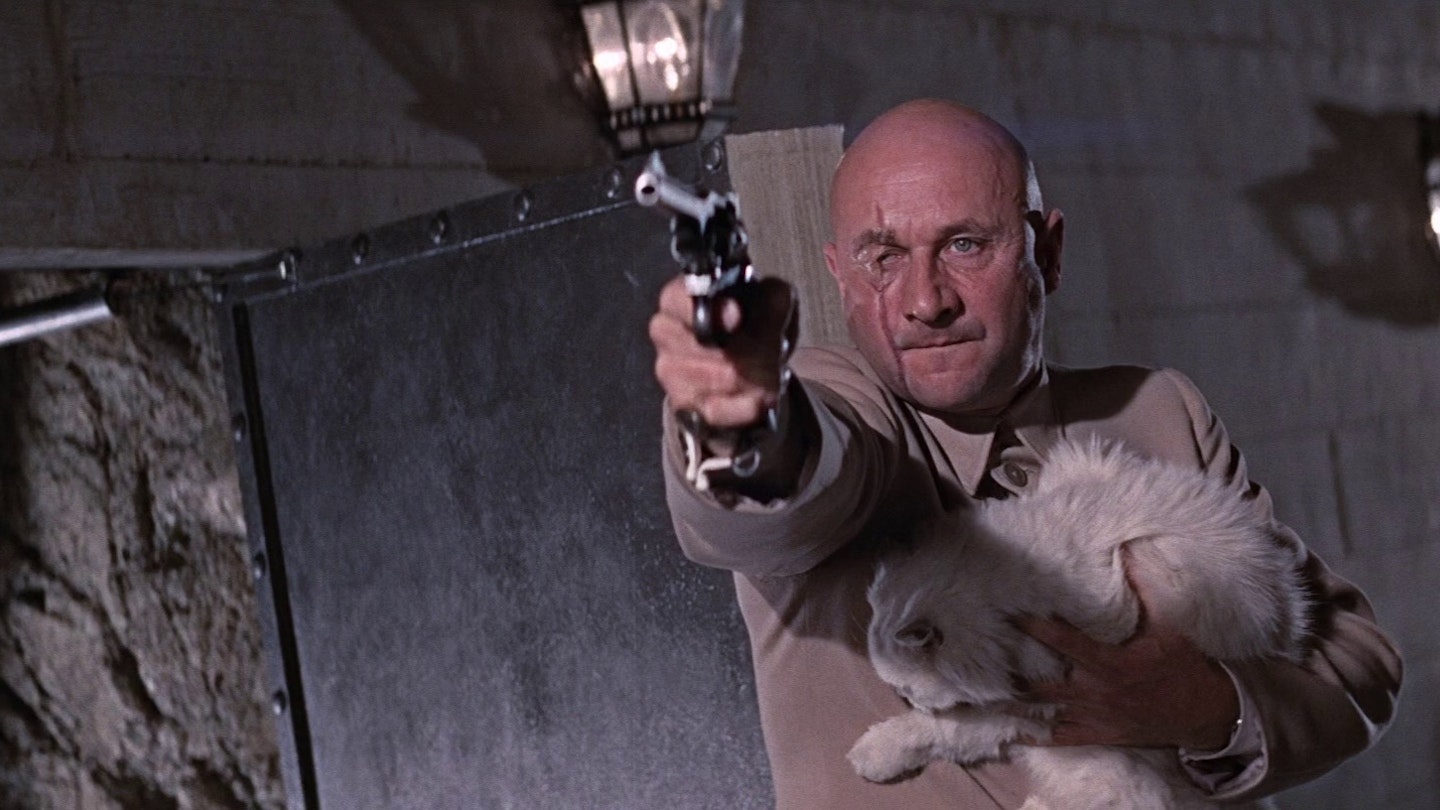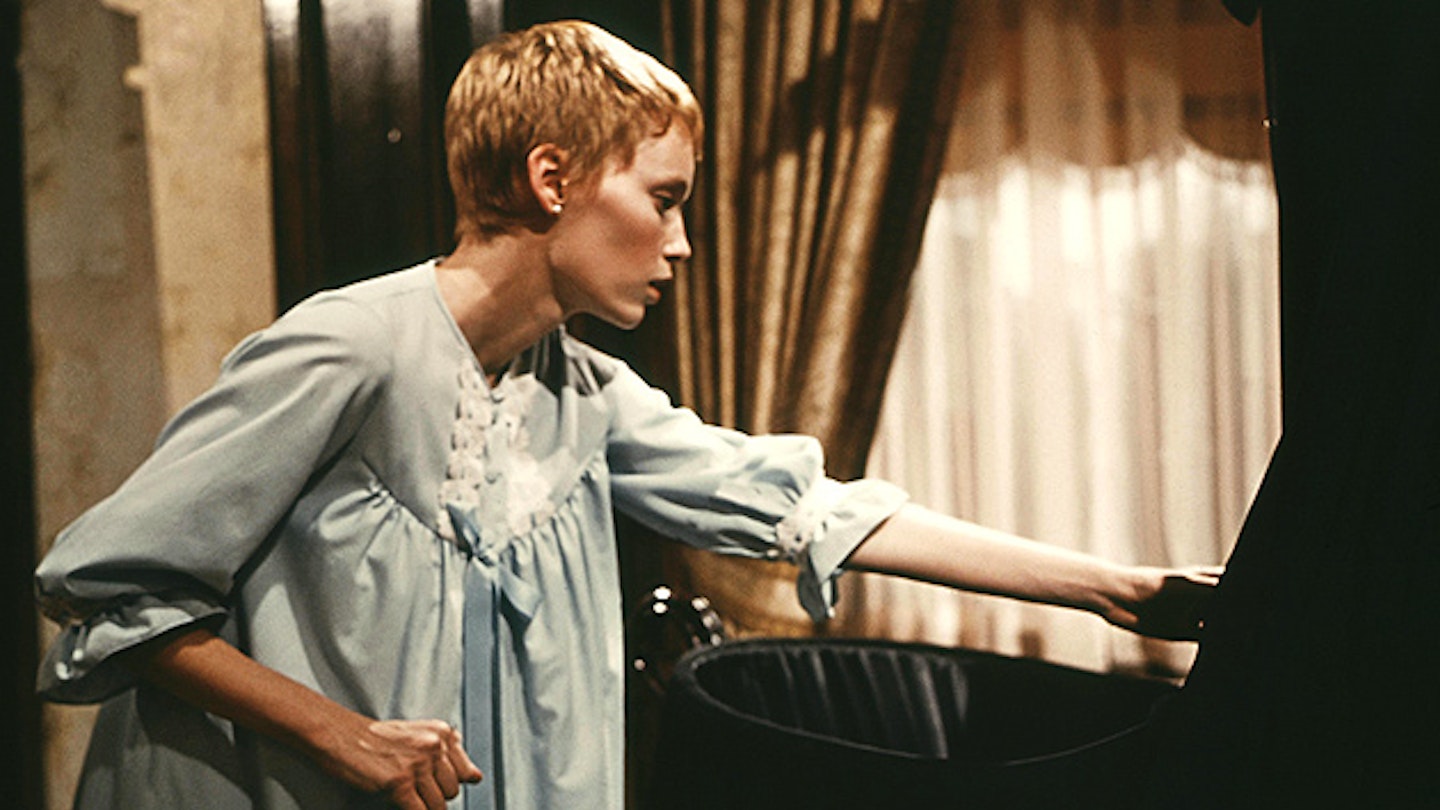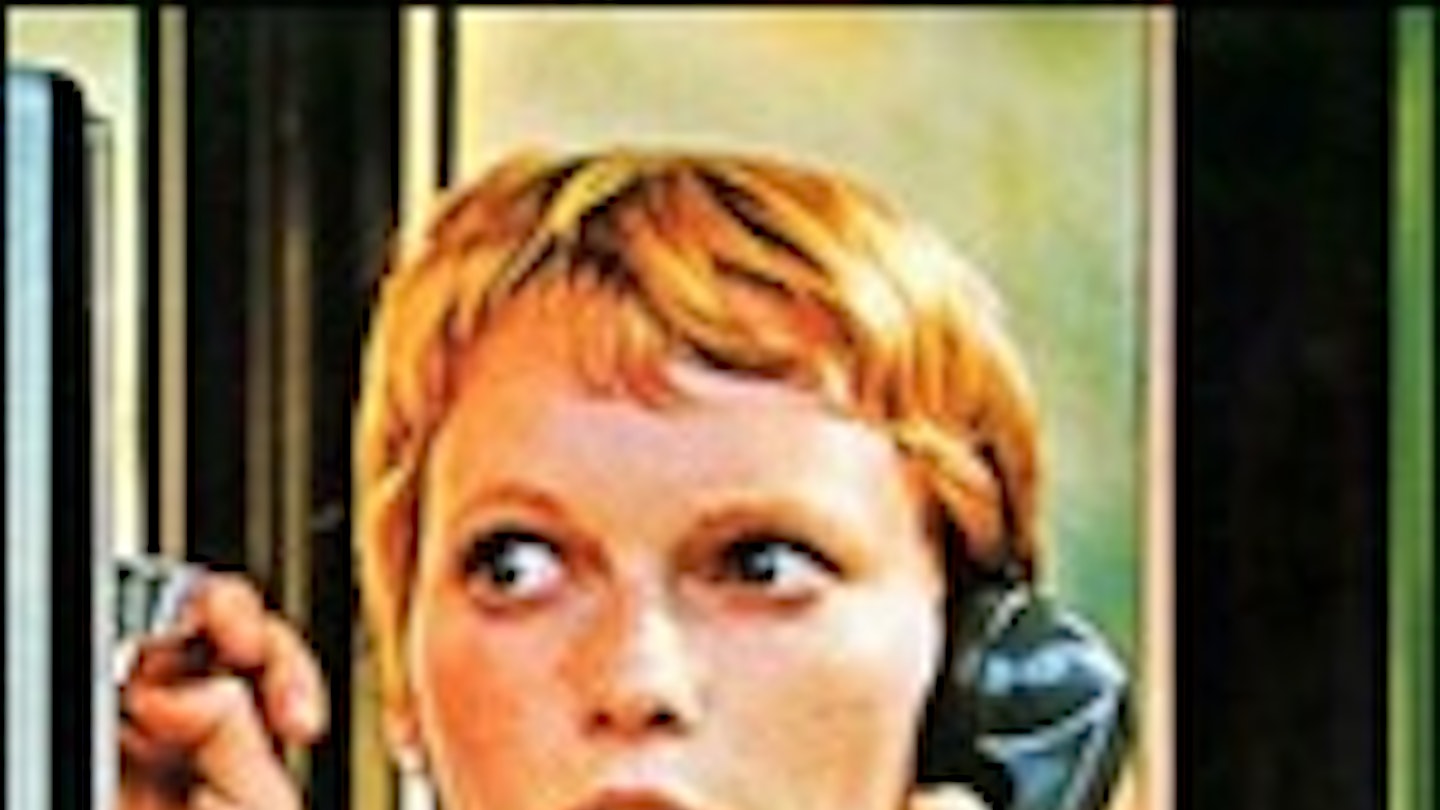Talk about strange food cravings and hormonal crazies. Welcome to the most famously difficult pregnancy in movies. Surprisingly, this elegant treat was produced by William Castle, the shrewd and indefatigable schlockmeister whose gimmick-promoted oeuvre includes Macabre (1958) (for which Castle handed out Lloyds policies insuring moviegoers against death by fright), The Tingler (1959) (for which he had electric shock buzzers wired under some theatre seats) and House On Haunted Hill (1958) (at which skeletons flew over the audience's heads).
Rosemary's Baby was the ambitious and aesthetic highpoint of Castle's career. Thank God he didn't direct it. The property itself was a clear winner. Novelist Ira Levin's page-turner of witches on Manhattan's Upper West Side was a best-selling sensation, and his work has a creepy, compelling energy irresistible to filmmakers (A Kiss Before Dying (1956), The Stepford Wives (1975), The Boys From Brazil (1978)). But Polanski had an important reservation about Levin's novel. Polanski had seen too much real horror in his life and this was before the Manson murders to treat diabolism seriously. He added notes of fantasy and black comedy to a grim fairytale and emphasised its psychological undertones. His screenplay adaptation (Academy Award nominated) does stick to the story. Young newly-weds Rosemary (Farrow) and Guy Woodhouse (Cassavetes), he a struggling actor, rent and prettily redecorate a gloomy but spectacular apartment in The Branford, an apartment building with an unpleasant history of cannibalism, witchcraft, infanticide and suicide. (The film was shot at the exclusive Dakota Building at 1 West 72nd Street, where the remarkable tenant roster has included Boris Karloff, Lauren Bacall and John Lennon, who was murdered outside.) They are befriended by aged, eccentric neighbours, the raucous Minnie (Gordon) and well-travelled Roman Castevet (Blackmer). During her longed-for pregnancy (after dreaming that she'd been raped by something monstrous), oddities, miseries and weirdness accrue before Rosemary realises the Castevets lead a witches' coven. She becomes convinced they want to sacrifice her baby to the Devil, and that her husband has agreed to help them in return for professional success.
The "truth" is even worse than Rosemary's feverish imagination and mounting paranoia paints it, but Polanski, who so shockingly depicted a sexually repressed, solitary young woman going crazy in Repulsion (1965), keeps things as disturbingly unsettled and ambiguous as he can right up to the end. Rosemary doesn't work, she never sees friends or communicates with the large family she mentions, and she's married to a vain, selfish man well, he's an actor all of which reinforces her isolation. Her Catholic guilt and sexual repression are reflected in her dreams: surreal sequences in which John and Jackie Kennedy, nuns, and the Pope flit through erotic fantasies. When Rosemary and Guy actually have sex it isn't spontaneous or heated but studied and pre-arranged.
The film revolves around Farrow, who is in all but a very few shots. Polanski slyly exploits her mannered childishness. Even before she gets pregnant she wears shapeless little smocks and flat, little girl shoes. When she has her hair trendily cropped at Vidal Sassoon (one of the film's ubiquitous, precise notations of a cultural signpost for the year of the story, 1965-66) she is even more pathetically waifish. She is so unwomanly it seems odd that Cassavetes' Guy would be married to her, unless it is for her compliance. Easily led, Rosemary repeats parrot-fashion other characters' statements and allows herself to be utterly dominated. Polanski's first choice for Guy was Robert Redford, who turned it down. It would have been interesting to see Guy as a golden boy whose darkness and betrayal is not so evident and plausible as it is in Cassavetes' sardonic style.
The elderly folk around them are all highly-seasoned, savvy veteran actors. Seventy two-year-old Ruth Gordon was a Broadway star more widely renowned as the screenwriter (with her husband Garson Kanin) of witty hits including Adam's Rib. Her pushy Minnie scores at every turn, with her syllable enhanced shrieks of "preg-a-nant!" and "ca-lumsy!", her outre dress sense, and her hausfrau mentality that makes her more concerned about the mark left in her hardwood floor by Rosemary's knife than she is about any threat from the distraught young woman.
That she could be the lynchpin of a satanic conspiracy is hilariously fantastic. Hers is an inspired performance, and it won her an Oscar. More soberly Sidney Blackmer and Ralph Bellamy provide nicely judged grandfatherly-but-sinister figures to whom Rosemary fatefully defers. Maurice Evans, whose illustrious stage career has been overshadowed by his Dr. Zaius in the Planet Of The Apes cycle, is the concerned, avuncular old friend Hutch, whose bequest to Rosemary, a book on witchcraft and the deathbed message "The name is an anagram", stir her to action for a nail-biting 30 minutes.
But even at the last minute you can't be sure she isn't crazy. Maybe they're all nuts. We never see what is in that black-draped cradle. It's that smile playing on Rosemary's lips, suggesting that her maternal instinct and the conspirators' hold on this vapid baby doll have prevailed, that provides the biggest chill.
